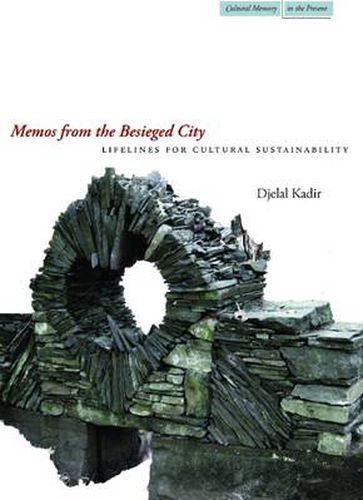Readings Newsletter
Become a Readings Member to make your shopping experience even easier.
Sign in or sign up for free!
You’re not far away from qualifying for FREE standard shipping within Australia
You’ve qualified for FREE standard shipping within Australia
The cart is loading…






Memos from the Besieged City argues for the institutional and cultural relevance of literary study through foundational figures, from the 1200s to today, who defied precarious circumstances to make significant contributions to literacy and civilization in the face of infelicitous human acts. Focusing on historically vital crossroads-Baghdad, Florence, Byzantium, Istanbul, Rome, Paris, New York, Mexico City, Jerusalem, Beijing, Stockholm, Warsaw-Kadir looks at how unconventional and nonconformist writings define literacy, culture, and intellectual commitment. Inspired by political refugee and literary scholar Erich Auerbach’s path-breaking Mimesis, and informed by late twentieth-century ideological and methodological upheavals, the book reflects on literacy and dissidence at a moment when literary disciplines, canons, and theories are being reassessed under the pressure of globalization and transculturation. At the forefront of an ethical turn in the comparative analysis of cultures and their literary legacies, it reminds us of the best humanity can produce.
$9.00 standard shipping within Australia
FREE standard shipping within Australia for orders over $100.00
Express & International shipping calculated at checkout
Memos from the Besieged City argues for the institutional and cultural relevance of literary study through foundational figures, from the 1200s to today, who defied precarious circumstances to make significant contributions to literacy and civilization in the face of infelicitous human acts. Focusing on historically vital crossroads-Baghdad, Florence, Byzantium, Istanbul, Rome, Paris, New York, Mexico City, Jerusalem, Beijing, Stockholm, Warsaw-Kadir looks at how unconventional and nonconformist writings define literacy, culture, and intellectual commitment. Inspired by political refugee and literary scholar Erich Auerbach’s path-breaking Mimesis, and informed by late twentieth-century ideological and methodological upheavals, the book reflects on literacy and dissidence at a moment when literary disciplines, canons, and theories are being reassessed under the pressure of globalization and transculturation. At the forefront of an ethical turn in the comparative analysis of cultures and their literary legacies, it reminds us of the best humanity can produce.